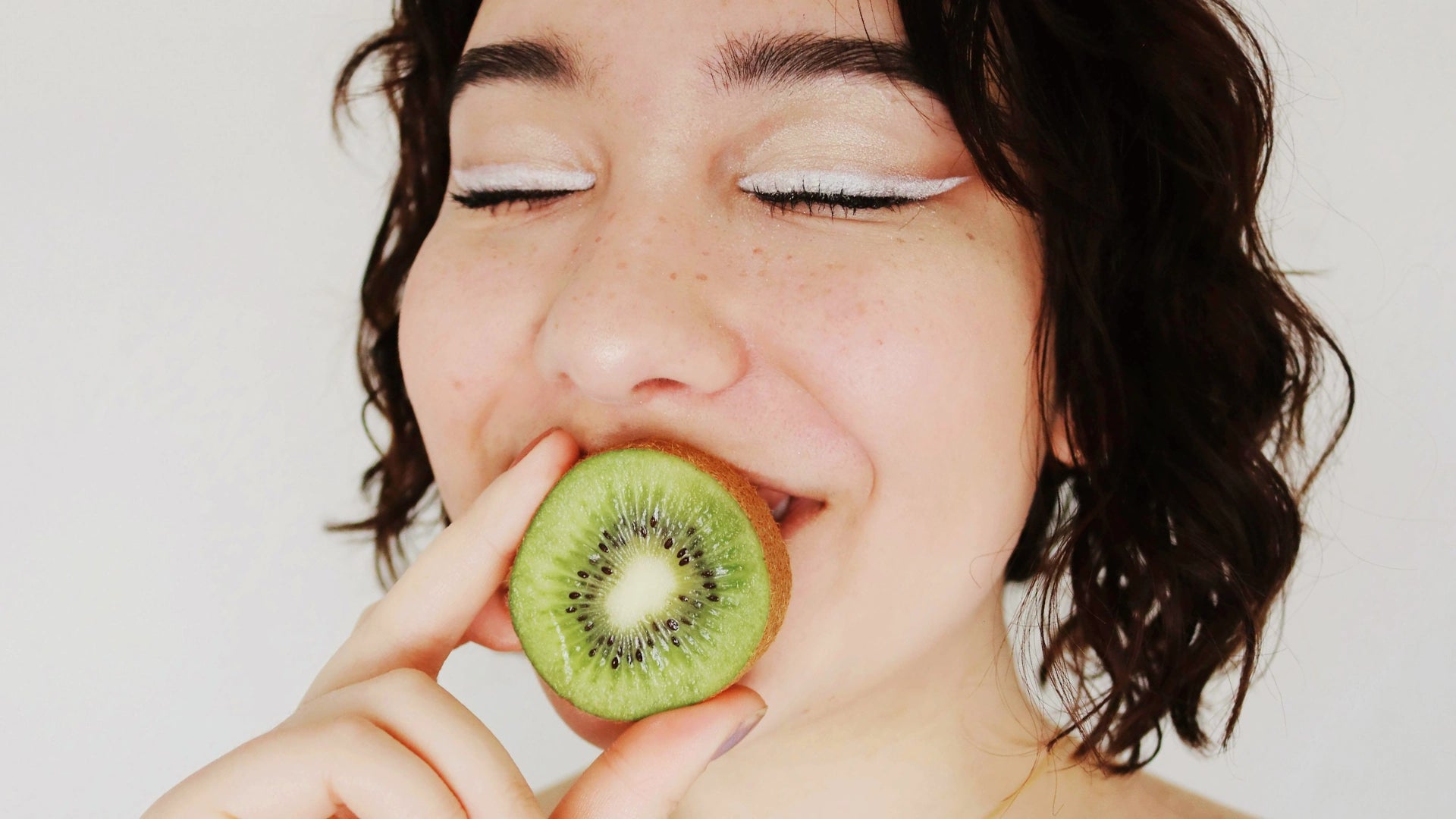While they’re all part of the biotic family, they’re not the same thing.
So, what’s the difference? Let’s take a look, shall we?
Prebiotics in a nutshell
Prebiotics are a type of fiber that the human body can't digest, but that the beneficial bacteria in your gut absolutely love.
Prebiotics act as food for microorganisms, stimulating the growth and activity of good bacteria in the gut. Prebiotics are found in a variety of foods, including bananas, onions, broccoli, garlic, and whole grains.
Prebiotics can also be combined with probiotics in products to stimulate not only the normal gut bacteria but also the probiotic.
Probiotics in a nutshell
Probiotics are the superheroes of the bacterial world. In 2002, the World Health Organization defined probiotics as “live microorganisms, which, when administered in adequate amounts confer a health benefit on the host”.
They're live microorganisms that are really good for your gut health. Probiotics can be found in foods and dietary supplements, such as chewable tablets, capsules and drops.
Postbiotics in a nutshell
Postbiotics are defined as a "preparation of inanimate microorganisms and/or their components that confers a health benefit on the host".
They're not living bacteria, but rather the beneficial byproducts that are a result of the metabolism of bacteria cell or inanimate fragments of these bacteria.
While postbiotics are derived from microorganisms, they don't have to come from probiotics. However, like probiotics, they need to provide a beneficial effect.
--
Now that we’ve taken a quick look at the difference between the three, let’s take a closer look.
Understanding Prebiotics
Prebiotics are like "superfoods" for the good bacteria in your gut. They give your good gut bacteria the energy and nutrients they need to thrive and keep your digestive system healthy. Prebiotics can be found naturally in many foods, including chicory root, Jerusalem artichokes, onions, garlic, leeks, asparagus, bananas, and whole grains. So next time you’re eating a banana, remember that you're not just fueling yourself, you're also nourishing your helpful gut bacteria.
Research suggests that prebiotics from food sources have numerous health benefits, such as improving digestion, enhancing immune function, reducing inflammation, and even potentially preventing certain chronic diseases such as obesity and type 2 diabetes.*
Understanding Probiotics
At BioGaia, we often say that good health starts in the gut. A healthy gut is essential for overall health, and this is where probiotics come into the picture.
Among their many benefits, probiotics have been shown to:
- Improve digestive health, reduce symptoms of digestive disorders like IBS, bloating or constipation, and support overall gut health*
- Boost the immune system and “promote a healthy immune response*
- Enhance nutrient absorption and help to prevent nutrient deficiencies*
- Reduce sick days*
- Reduce side effects of antibiotic therapy*
Understanding Postbiotics
Unlike probiotics, postbiotics are not alive. On the contrary, postbiotics are parts of bacteria cells or compounds produced by a bacteria cell that is no longer living when the product is consumed.
The benefits of postbiotic compounds such as short-chain fatty acids can, for example, reduce inflammation in the gut and improve nutrient absorption. Other postbiotic compounds like certain enzymes can break down complex carbohydrates and proteins.
Postbiotics is a new area of research, and, as such, few products exist on the market. What’s important is that, like prebiotics and probiotics, the positive effects of postbiotics must be proven in clinical studies.
---
So, there you have it. While pre, pro, and postbiotics are different, one thing they all have in common is that they promote and support health.
To learn more about probiotics, explore the other articles and videos here in our Learning Lab.




